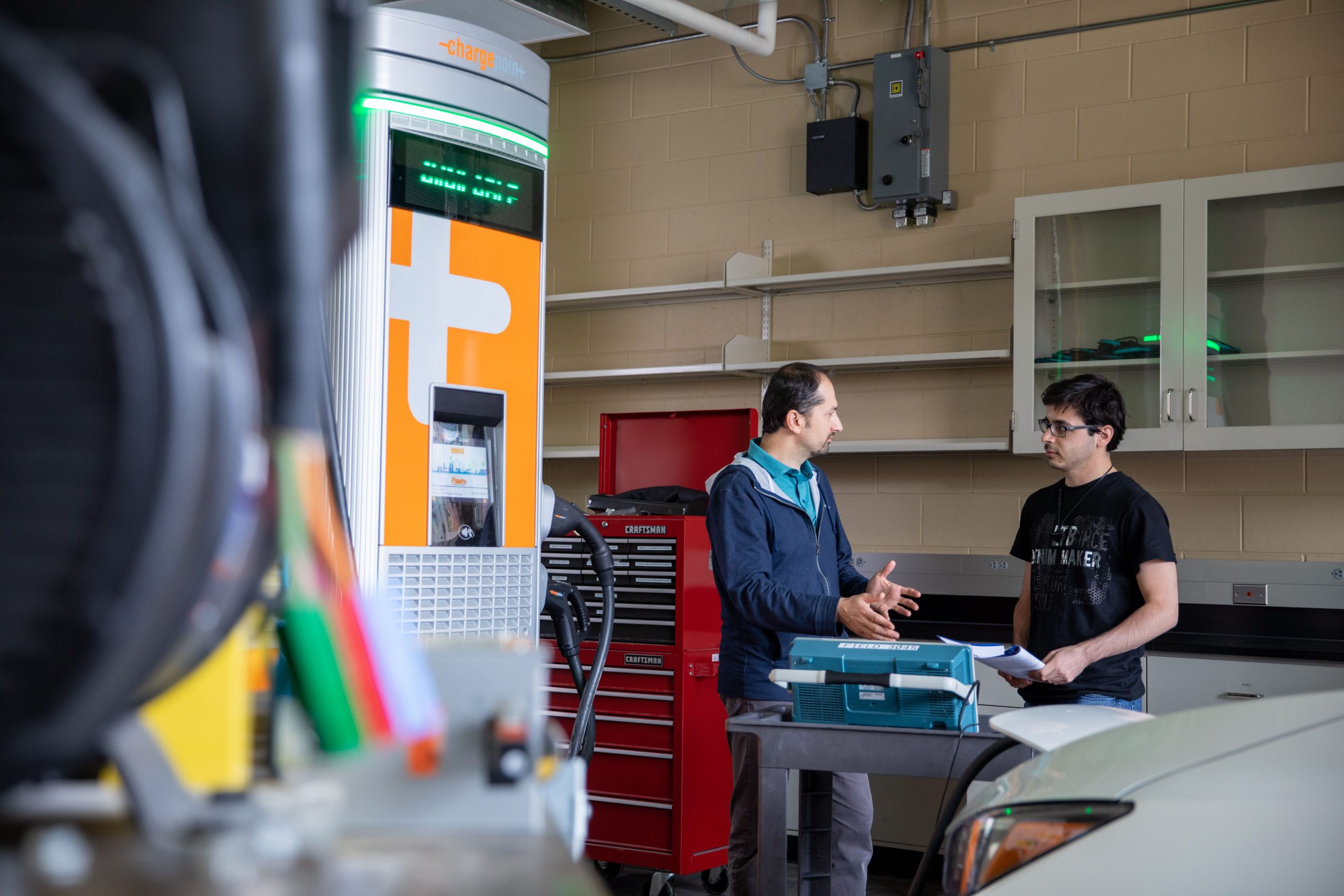Graduate Certificate Programs
Colorado State University, Graduate Certificate in Hybrid-Electric Vehicle Engineering
The program goal is to prepare engineers to work in the field of hybrid-electric vehicles on mechanical, electrical, and environmental engineering challenges with attention to economic and technical design problems engineers must overcome for electric vehicle penetration to the automotive market.
Indiana University – Purdue University Indianapolis, Graduate Certificate in Hybrid Electric Vehicle Technology
This certificate program is designed to address industry’s increased needs for engineers having expertise in EV/HEV/PHEV. It will prepare today’s engineers to be competitive in taking on the new challenges facing the industry so that the companies in automotive sector can compete globally.
Michigan Tech, Hybrid Electric Vehicle Curriculum (HEV), Graduate Certificate
Michigan Tech’s pioneering program in hybrid electric vehicle engineering was started with a $3 million US Department of Energy grant and $750,000 of in-kind contributions from industry sponsors and partners. Graduate and undergraduate courses are offered on campus and online. The program offers a graduate certificate in Hybrid Electric Vehicles.
Penn State University, Graduate Automotive Technology Education (GATE) Program
Penn State GATE students can access a graduate engineering curriculum focused on high-power in-vehicle energy storage for hybrid electric and fuel cell vehicles covering the fundamental science and models for batteries, capacitors, flywheels, and their combinations. Penn State GATE integrates system topics into energy storage curriculum including vehicle topologies, advanced combustion, fuel cells, power electronics, controls, alternative fuels, and vehicle fuel efficiency to prepare students for careers in the automotive industry and research. The program also fosters relationships between GATE students, faculty, employers, and industry/research partners. Gate students completing the three-course curriculum receive a GATE curriculum completion certificate.
University of Colorado – Boulder and University of Colorado – Colorado Springs, Graduate Certificate, Electric Drivetrain Technology
The University of Colorado – Colorado Springs (UCCS) and the University of Colorado – Boulder (CU-Boulder) jointly offer a Graduate Certificate in Electric Drivetrain Technology to qualified students. The program has been designed to provide professionals involved in power electronics, battery controls, and/or automotive industries the capability and motivation to continue with post-graduate education. These potential students may not wish to pursue an in-depth rigorous Master of Science program at this time but nonetheless desire to increase their professional capability and enhance career advancement opportunities.
University of Detroit Mercy, Advanced Electric Vehicles Graduate Certificate or Coursework Applied to a Master’s Degree
Detroit Mercy’s Advanced Electric Vehicle (AEV) certificate program provides you with the latest technological instruction and understanding in automotive and defense ground vehicle industries. You will learn the unique skills that industry needs to build the next generation of advanced electric vehicles. The certificate program is currently offered online through the Engineering Graduate Programs office and the certificate can normally be earned in one calendar year. Additionally, the coursework can be applied towards one of four master’s degree programs within UDM’s College of Engineering and Science.
Wayne State University, Electric-Drive Vehicle Engineering Graduate Certificate
This graduate program concentrates on teaching the knowledge and skills that are essential for the development of hybrid electric vehicle technologies. The EVE program offers courses such as EVE 5120 “Fundamentals of Battery Systems for Electric and Hybrid Vehicle” and EVE 5430 “Modeling and Control of Electric-drive Powertrains.”
Master’s Degree Programs
Kettering University (Michigan), Master’s of Engineering: Electric Vehicles
The Master of Engineering in Electric Vehicles degree is designed for engineering professionals working in the mobility (automotive) industry. This is not a research degree – there is no option for thesis work – it is more of a hands-on, get-it-done degree.
University of Colorado – Boulder, Master of Science in Electrical Engineering
Specialization in electric drivetrains such as found in hybrid and EVs, including plug-in and extended range EVs.
University of Colorado – Colorado Springs, Master of Science in Electric Engineering with the option to concentrate in Battery Controls (MSEE-BC)
The UCCS Department of Electrical and Computer Engineering offers course work and thesis supervision leading to the degree Master of Science in Electrical Engineering with an option in Battery Controls (MSEE-BC).
University of Michigan, Master of Engineering in Automotive Engineering
Competency areas including Hybrid Electric Vehicles and Battery Systems, Self-driving Cars, and Automotive Electronics: Electric machines and power electronics.
Michigan Tech, Hybrid Electric Vehicle Curriculum (HEV) Master’s Program
Michigan Tech’s pioneering program in hybrid electric vehicle engineering was started with a $3 million US Department of Energy grant and $750,000 of in-kind contributions from industry sponsors and partners. Graduate and undergraduate courses are offered on campus and online. The program offers a M.S. in Mechanical Engineering or Electrical engineering, with an emphasis in Hybrid Electric Vehicle Engineering.
The Ohio State University, Graduate Specialization in Automotive Systems and Mobility
Expertise areas including Power Electronics and Electric Machines.
Wayne State University, Electric-Drive Vehicle Engineering, Master’s Degree
This graduate program concentrates on teaching the knowledge and skills that are essential for the development of hybrid electric vehicle technologies. The EVE program offers courses such as EVE 5120 “Fundamentals of Battery Systems for Electric and Hybrid Vehicle” and EVE 5430 “Modeling and Control of Electric-drive Powertrains.”
